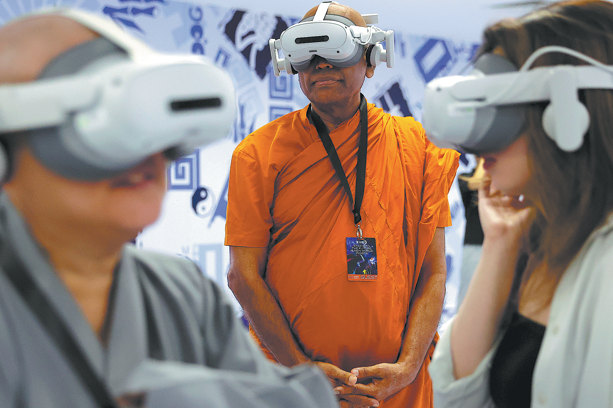Criticizing Israel's Gaza action not anti-Semitism
By Wang Zhen | China Daily | Updated: 2024-01-04 07:05

By Jan 2, Israel's military adventurism in the Gaza Strip had claimed the lives of more than 22,000 people, the majority being women and children, inviting a wave of criticism and condemnation from around the world. But some Israeli and Western media outlets have chosen to target Chinese netizens, accusing them of "anti-Semitism" for criticizing Israel's military policy. Such criticism, if not an attempt to confuse right and wrong and to call a stag a horse, is an attempt to deny history or misrepresent it.
The term "anti-Semitism" refers to prejudice, discrimination and hatred against Jews, their religion and culture. Since the time of the Diaspora, Jews scattered across the world have faced anti-Semitism. They have been discriminated against, expelled from different lands and even massacred because of their ethnicity and religion. They have been forced to wear special markings, move into ghettos and pay extra protection fees to governments. The Holocaust, perpetrated by Hitler in the 1930s and 1940s, is the worst genocide in history and a tragic irony of modern Western civilization.
In contrast, a thriving Jewish community once flourished in Kaifeng, capital of China during the Northern Song Dynasty (960-1127). The Jews, known locally as the "blue-capped Huihui", eventually integrated into Chinese society, making it the only anthropological case of Jewish assimilation in a non-Jewish society.
Even in modern China, there is no place for anti-Semitism. Among the Jews who came to China in modern times were both Sephardic Jews, who followed in the footsteps of the Western colonizers, and Ashkenazi Jews, who fled the anti-Semitic persecution in Europe, and Russia following the October Revolution and the subsequent Russian Civil War.
During World War II, when the Nazis were killing Jews by the millions in Europe, Shanghai, which faced Japanese imperialist aggression, became for some time the proverbial Noah's Ark for many Jewish refugees, with a group of Chinese left-wing leaders led by Lu Xun and Soong Ching-ling taking to the streets to protest against the fascist policies of Nazi Germany.
More importantly, He Fengshan, a Chinese diplomat in Vienna, risked everything to issue "life visas" to thousands of Jews so they could escape Hitler's murderous persecution. The Chinese national government at the time even planned to settle the Jews in Yunnan province but could not do so because of the Japanese military's pressure.
Back to the Gaza conflict, Chinese netizens have mainly criticized the military adventurism of Israel which has claimed more than 22,000 lives. Such criticisms cannot be equated with hatred or discrimination against the Jewish people. Confronted with images of children's corpses, destroyed homes, bombed hospitals and damaged United Nations humanitarian agency offices and compounds in Gaza, anyone would criticize the perpetrators.
Regardless of the pretexts cited by Israel, such military operations are unacceptable and go against the very reason why the international community supported the creation of the state of Israel in the first place — Israel was created based on the UN Partition Plan (Resolution 181) in November 1947.
Even in the light of international political realities, Israel's military operations in Gaza cannot be justified. The ruling Hamas dispensation in Gaza is both an armed nonstate actor and a transnational ideological and social movement. And the policy of "de-Hamasization" pursued by Israel in Gaza is not a viable military objective. In other words, no matter how much Israel achieves militarily in Gaza, it will be difficult for it to rid itself of the moral stigma of carrying out the military operation, and thus weaken the moral basis of the policies of Israel and its allies.
Any attempt to distort such criticisms and claim they are "anti-Semitic", or to weaponize "anti-Semitism" without regard for the facts will hurt those who love peace, and benefit those who are not. Chinese people are genuinely concerned about peace being restored in the Palestine-Israel conflict.
Therefore, it's unreasonable to label China as anti-Semitic or equate the criticisms of Israel's military adventurism with anti-Semitism. China is against all kinds of anti-Semitism, including the irresponsible and meaningless weaponization of anti-Semitism.
The author is a professor at the Institute of International Relations of the Shanghai Academy of Social Sciences and deputy director of the Center for Jewish Studies in Shanghai.
The opinions expressed here are those of the writer and do not necessarily represent the views of China Daily and China Daily website.
If you have a specific expertise, or would like to share your thought about our stories, then send us your writings at opinion@chinadaily.com.cn, and comment@chinadaily.com.cn.
























